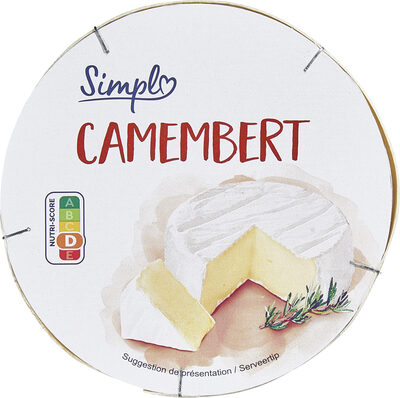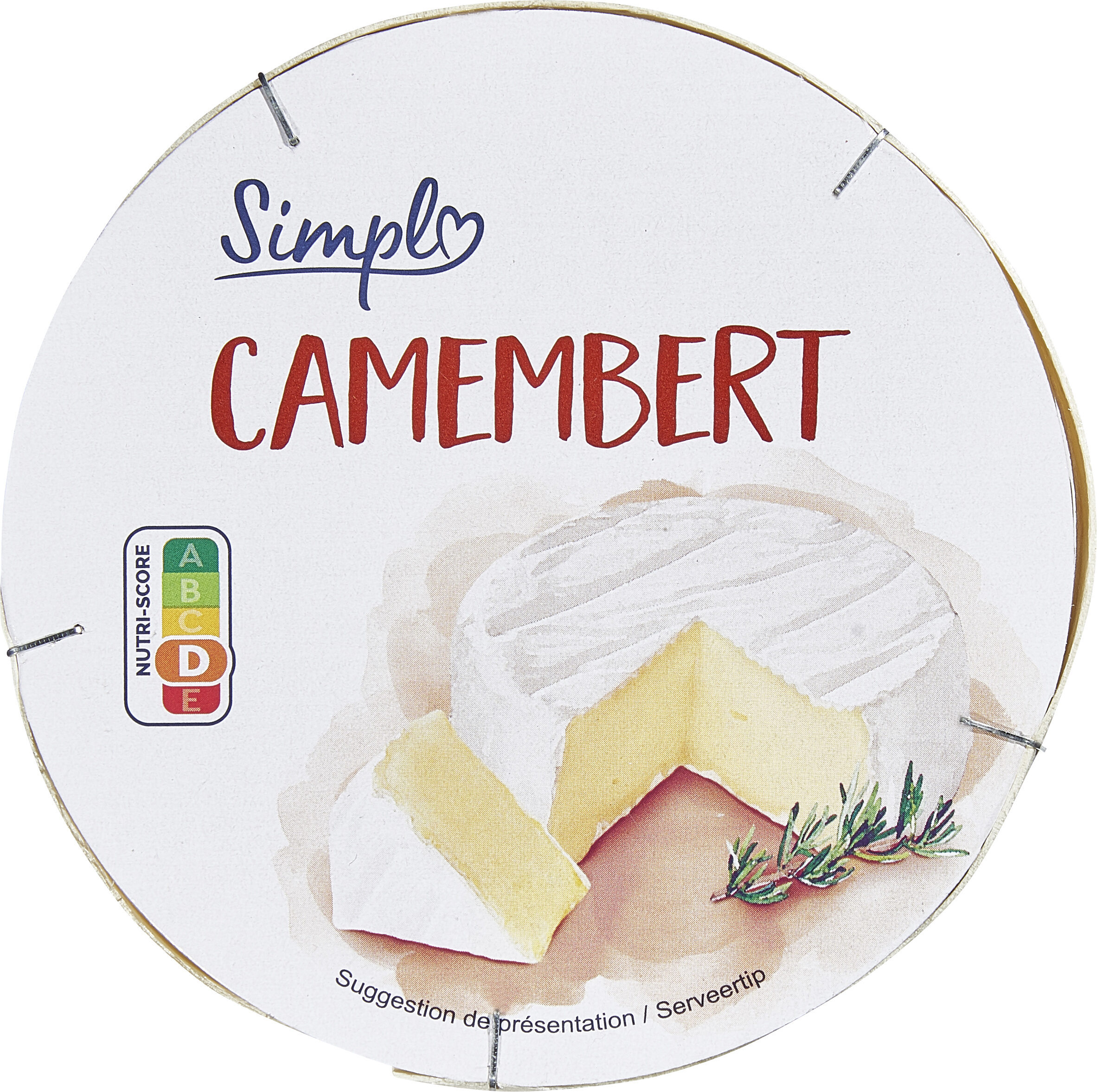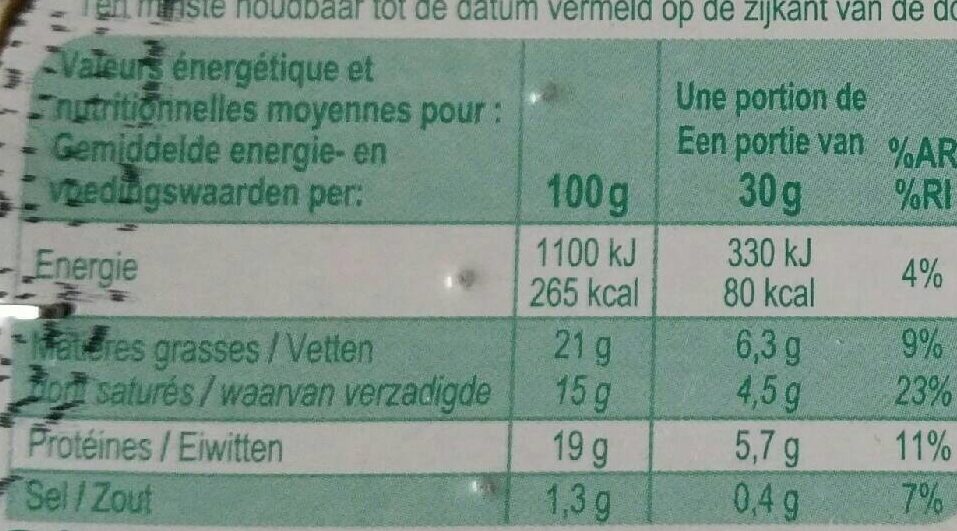Camembert (21 % MG) - Simpl - 250 g
This product page is not complete. You can help to complete it by editing it and adding more data from the photos we have, or by taking more photos using the app for Android or iPhone/iPad. Thank you!
×
Some of the data for this product has been provided directly by the manufacturer Carrefour.
Barcode: 3560070349746 (EAN / EAN-13)
Common name: Camembert - Fromage à pâte molle au lait pasteurisé de vache
Quantity: 250 g
Packaging: Fresh
Categories: Dairies, Fermented foods, Fermented milk products, Cheeses, Soft cheeses, Cow cheeses, Fresh foods, Soft cheeses with bloomy rind, Camemberts, Cow camemberts, French cheeses, Pasteurized cheeses, Camemberts from pasteurized cow milk, Industrial cheese
Labels, certifications, awards:
Distributor labels, Carrefour Quality, Green Dot, Made in France, Nutriscore, Nutriscore Grade D, fr:Eco-Emballages
Manufacturing or processing places: Fromageries Saint-Saviol (Filiale Groupe Savencia Saveurs & Spécialités) - 86400 Saint-Saviol. Société Fromagère de Domfront 61700. Société Fromagère de Sainte Cécile 50800., Vienne, Poitou-Charentes, France
Traceability code: FR 86.247.001 CE - Saint-Saviol (Vienne, France), EMB 86247 - Saint-Saviol (Vienne, France), FR 23.117.001 CE - Maison-Feyne (Creuse, France), EMB 23117 - Maison-Feyne (Creuse, France)
Stores: Carrefour, Carrefour market, Migros, carrefour.fr
Countries where sold: France
Matching with your preferences
Other information
Preparation: Afin d'apprécier au mieux votre camembert , nous vous conseillons de le sortir du réfrigérateur dès le début de votre repas.
Conservation conditions: A conserver entre +4°C et +8°C. Pour une dégustation optimale, à consommer de préférence avant la date indiquée sur le côté de la boîte.
Customer service: Interdis - TSA 91431 - 91343 MASSY Cedex - France
Report a problem
Data sources
Product added on by andre
Last edit of product page on by org-carrefour.
Product page also edited by chevalstar, date-limite-app, driveoff, ecoscore-impact-estimator, embruns, firstpricelover, foodvisor, fral, jacob80, kiliweb, lucaa, manu1400, marite, off.6a15a964-b5e5-44cc-baa5-583b7118e628, openfoodfacts-contributors, quechoisir, roboto-app, teolemon, thierrym, yuka.RzZFUktvQWwrOTRMbHZZRS9CRDI2TjFubkw3eERIS0dOZU1oSVE9PQ, yuka.UloweE1xc2crLzR6bi8wdTdESHAxZHRUK3BUd2JISG9CZlpNSVE9PQ, yuka.sY2b0xO6T85zoF3NwEKvlm0YXubkgiD2OzzggnaV7--pIJHHWc8i77DoLqg.













